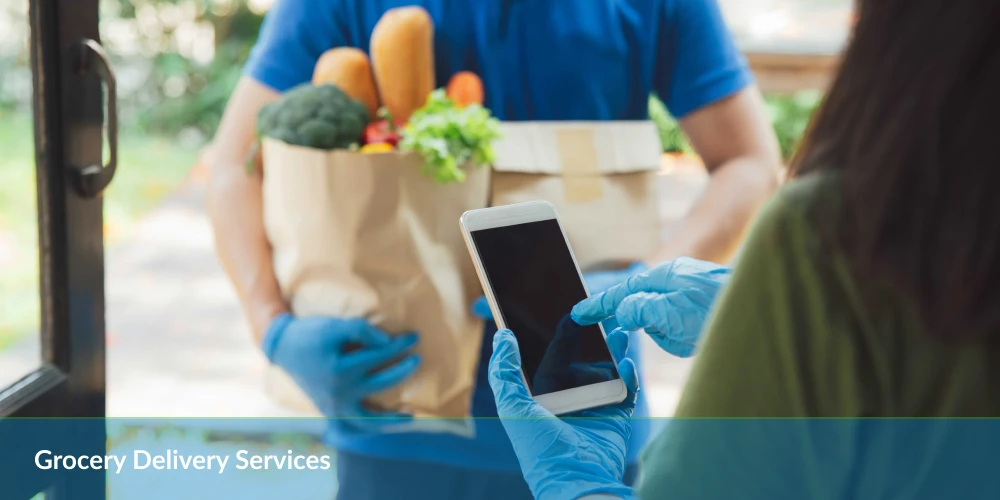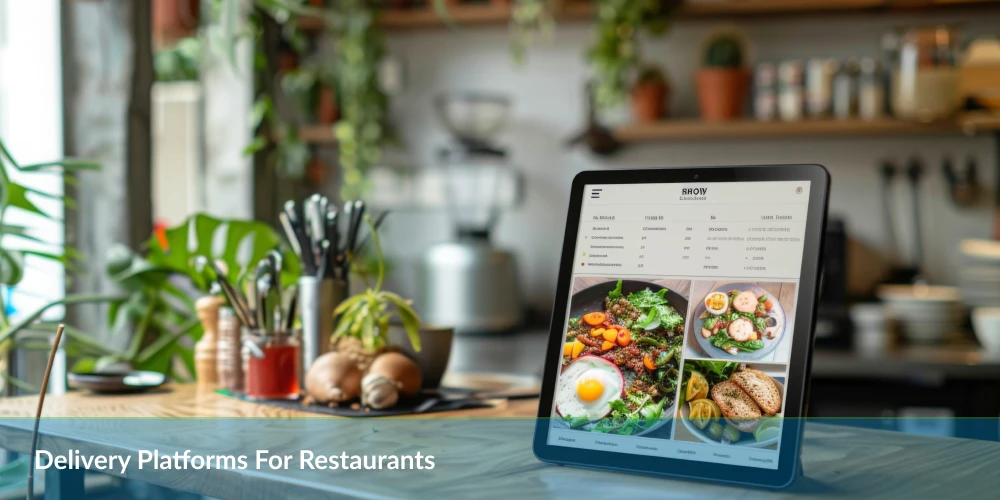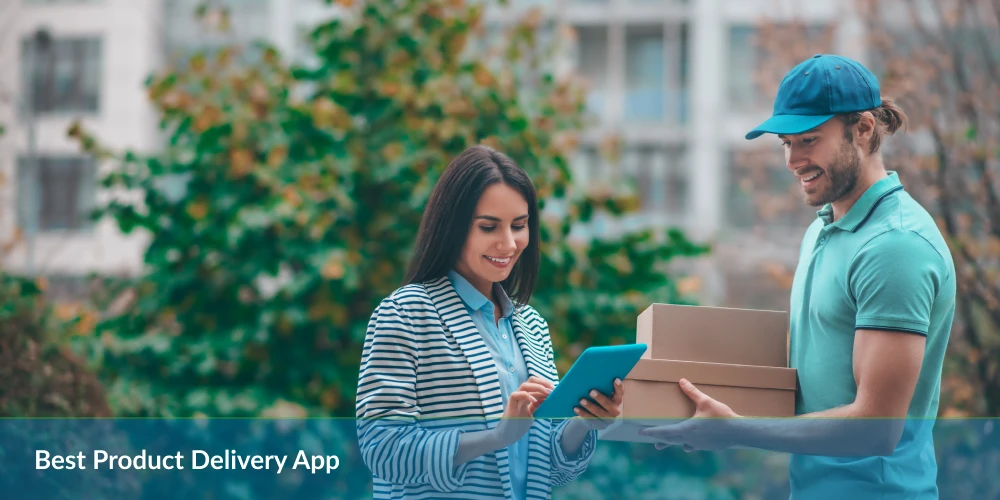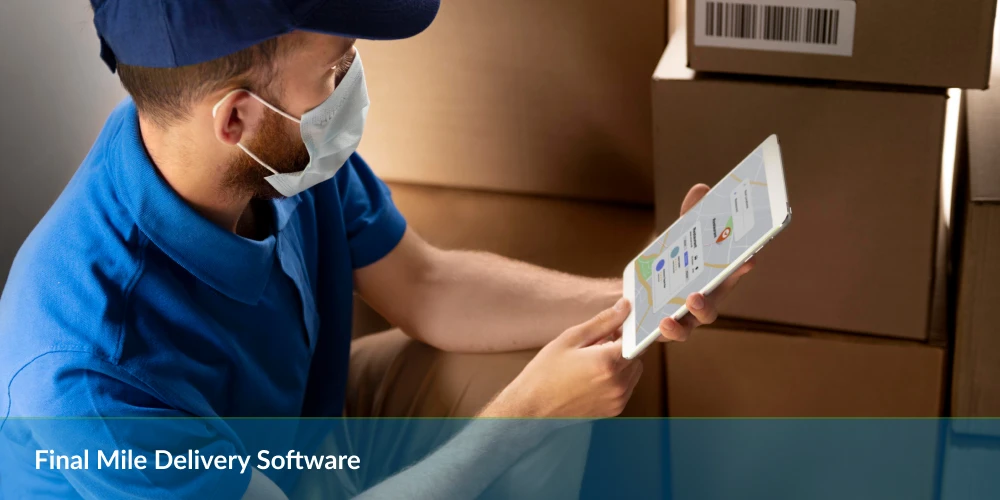Table of Contents
Today, grocery delivery services have emerged as a crucial component for modern businesses, transforming how companies manage their operations and interact with customers. With the rise of e-commerce and changing consumer expectations, businesses across various sectors recognize the value of integrating grocery delivery into their service offerings. This trend enhances customer convenience and gives companies a competitive edge in a crowded market.

Furthermore, grocery delivery services offer significant operational benefits, including improved inventory management and streamlined supply chain processes. By leveraging these services, businesses can reduce overhead costs, minimize stockouts, and optimize their procurement strategies. Effective grocery delivery management has become crucial for businesses aiming to stay relevant and responsive in an ever-evolving marketplace. As consumer preferences shift towards on-demand solutions, implementing robust grocery delivery management systems allows companies to meet customer expectations while maintaining operational efficiency.
Grocery Delivery Services Elevating Business Operations
Businesses leveraging grocery delivery services are rapidly experiencing time savings and increased efficiency. These services streamline inventory management processes, allowing employees to focus on core business activities rather than procurement. As a result, a notable boost in productivity as routine supply runs become obsolete, replaced by a streamlined digital ordering system.
A plethora of choices blooms with the diversification of products and accessibility offered by grocery delivery services. Businesses now access an expansive selection of goods that might have been previously unavailable due to geographic or logistical constraints. Companies can cater to niche markets and diversify their offerings by fulfilling specific customer needs with a broader inventory, enticing new customer bases.
Customer relations flourish when businesses deliver more than products; they deliver experiences. Businesses strengthen their reputation by providing enhanced customer service and satisfaction through reliable and timely delivery services. Consistent and accurate order fulfillment translates into customer gratification, contributing to customer loyalty and positive word-of-mouth.
Competitive edge is sharpened when businesses enjoy the distinction of offering same-day delivery. Many customers prioritize the availability of quick delivery options, viewing them as a necessity more than a luxury. Therefore, businesses that partner with grocery delivery services providing expeditious solutions are poised to capture the attention of an ever-growing segment of instant gratification seekers.
- Do you measure success by the ticking of a clock? Reflect on the saved hours redirected to enhance your business strategies.
- Think of your last unexpected product discovery. Could this be the norm with an array of groceries ready at your fingertips?
- Recall a time when customer feedback brightened your day. Envision a consistent stream of such commendations powered by impeccable delivery services.
Imagine the satisfaction of meeting urgent client demands. Visualize your business as the beacon for fast, dependable service in a sea of competition.
How to Choose the Right Grocery Delivery Service for Your Business
Decisions make the difference between a thriving business and one that struggles to meet customer expectations. Selecting a grocery delivery service is no different; precision in this choice aligns closely with your business’s operational efficiency and customer satisfaction levels. To initiate the selection process, reflect on your unique business needs and delivery requirements. Understand that your business model dictates what kind of delivery service will augment your offering.
Identifying Your Business Needs and Delivery Requirements
Whether you operate a restaurant needing daily fresh produce or an office requiring weekly snack restocks, your requirements vary significantly. Start by listing non-negotiable factors such as delivery frequency, order volume thresholds, and necessary delivery windows. This clarity ensures you approach services that cater to your specific scenario, eliminating those that cannot meet your basic logistical needs.
Evaluating Service Quality and Reliability
Quality and reliability forge the backbone of any delivery service. Examine reviews, request references, and perform test orders to measure a provider’s consistency. Remember, consistent quality in delivery operations directly sustains your brand’s reputation.
Assessing Product Variety and Freshness for Food Deliveries
The range and quality of products available can’t be understated for ventures dependent on fresh ingredients. Diverse inventory offerings ensure your menus remain vibrant and fresh. To maintain your standards, regularly check the delivered items for freshness. A delivery service that proactively rotates stock and showcases seasonal items can lead to enhanced customer experiences under your brand.
Considering Customization Options for Businesses
Your business’s unique character surfaces through the personalized experiences you provide customers, which might require specific delivery customizations. Some services allow bespoke packaging or include special handling instructions for delicate items. Explore these options to ensure they align with your business’s customer experience goals.
Engage in due diligence. Scrutinize the market. Ask tough questions. By adhering to these guidelines, you are poised to partner with a grocery delivery service that meets your business’s needs and even exceeds them, fostering growth and ensuring customer delight.
Unwrapping the Digital Revolution in Grocery Deliveries for Businesses
The supermarket aisles are witnessing a digital makeover, transforming how businesses restock pantry staples and unique ingredients. With a touch or a click, restaurant managers, office administrators, and local store owners can experience a seamless procurement experience. Have you considered how these digital shifts might bolster your business’s efficiency and customer satisfaction?
The Advent of Grocery Delivery Apps and Platforms
Imagine the marketplace in your pocket: grocery delivery apps and platforms make this a reality. These technological marvels offer rich catalogs of products, simplified order processes, and personalized account management. Users can handpick their grocery needs from a broad selection and check out with payment systems that can remember preferences and speed up future transactions.
Real-time Order Tracking and Management Solutions
Due to real-time order tracking and management solutions, uncertainty vanishes. These systems keep businesses plugged into the supply chain loop, allowing for adjustments on the fly. Have you ever wanted to visualize your delivery route or obtain a precise ETA? Now, with several taps on a screen, your business can master the art of timing, ensuring shelves are never bare and back-of-house operations hum with efficiency.
Integration with Existing Business Systems
Technology extends its hand to shake with existing business systems. Sophisticated grocery delivery services interface with inventory management software, point-of-sale systems, and financial accounting apps. This cloud-based handshake ensures real-time inventory updates, reduces human error, and paints a clear financial picture. As a result, businesses like yours can enjoy a harmonious balance between supply and demand.
Have you ever paused to reflect on the potential your business could unlock by harnessing the power of these technological advancements? Whether streamlining operations or enhancing customer experiences, technology embedded within grocery delivery services addresses current needs and gears up businesses for the future of food commerce.
Unpacking the Real Numbers: A Cost Analysis of Grocery Delivery for Businesses
The financial aspects warrant detailed examination when businesses consider enlisting grocery delivery services. Budgeting effectively for this service integrates several cost components into a financial strategy. Examining the immediate numbers alongside the long-term financial outlook can reveal the true value behind these services.
Long-term Savings and ROI for Your Business
Focusing on the upfront costs alone presents an incomplete picture. Adopting grocery delivery services can yield significant savings over time. Businesses can observe reduced logistics burdens and related costs by analyzing various saving potentials. Streamlining operations often leads to a noticeable return on investment (ROI), justifying the initial outlay for the service.
- Investigate the potential reduction in local transportation and overhead costs.
- Consider the ROI tied to employee productivity with time redirected from shopping.
- Foresee how centralized ordering can minimize waste and reduce expenses.
Budgeting for Grocery Delivery as a Business Expense
As businesses acclimate to regular use of grocery delivery services, classifying these expenses within the overall budget ensures a clear perspective on spending. A dedicated line item for grocery delivery becomes part of the financial planning, allowing companies to anticipate costs and manage cash flow effectively.
- Allocate funds specifically for grocery delivery in the business budget.
- Review expenditure regularly to adjust as your business scales.
- Explore service tiers and negotiate with providers to control these costs.
Streamline Your Business with Smart Inventory and Order Fulfillment
Grocery delivery services transform the way businesses handle inventory and order fulfillment. With these services, the approach to stocking and supplying shifts offers a streamlined, more efficient process.
The Impact on Business Inventory Management
When businesses integrate grocery delivery services, they notice a change in their inventory management strategies. These services offer a just-in-time inventory that reduces the need for large storage spaces and decreases waste from unsold goods. Access to real-time stock levels and automated replenishment systems ensures shelves are stocked with fresher products, catering to consumer demands for quality and freshness.
Strategies for Efficient Order Placement and Fulfillment
Mastering order placement and fulfillment starts with leveraging analytics and forecasting tools provided by grocery delivery services. Companies can accurately predict the quantity of products needed, thus avoiding overstocking or running short. Consolidating orders to reduce delivery frequency cuts costs and improves efficiency. Companies benefit from a single platform for ordering, tracking, and receiving grocery inventory. Continuous supplier performance evaluation based on delivery accuracy and times helps fine-tune the supply chain.
Dealing with Inconsistent Stock and Availability Challenges
Inconsistencies in stock and fluctuating availability can disrupt business operations. Proactive measures include diversifying suppliers to ensure alternatives when primary sources encounter shortages. Establishing strong relationships with suppliers can yield priority status and better response when restocking crucial items quickly. Advanced notice of seasonal fluctuations or anticipated stock shortages allows businesses to plan accordingly, securing necessary items in advance and preventing gaps in product availability.
- Real-time inventory management reduces waste and storage needs.
- Prediction tools and analytics enhance order accuracy.
- Diversifying suppliers guards against stock inconsistencies.
Seamless Integration of Grocery Delivery into Business Operations
Understanding that grocery delivery services must dovetail with existing company processes, businesses find that incorporating these services streamlines operations. When delivery services sync with business systems, the outcome includes more efficient workflows and optimized staff productivity.
Streamlining Business Operations with Delivery Services
Businesses leveraging grocery delivery services can expect a shift in their operations. With orders arriving on schedule, time previously allotted to procuring supplies is reallocated to core business activities. This change maximizes operational efficiency and ensures businesses can focus on growth and customer satisfaction.
Automated Reordering and Inventory Reconciliation
A key advantage grocery delivery services offer is the implementation of automated reordering systems. These systems can predict inventory needs and initiate orders before a stock-out occurs. Subsequently, this level of automation supports continuous inventory reconciliation, which leads to accurate stock levels without manual counts, reducing the potential for human error.
Custom Integration Options for Specialized Business Needs
Delivery services offer a range of integration options to match specific business requirements. For a company with unique workflow patterns or specialized software infrastructure, custom integration ensures that integrating a grocery delivery service will maintain established systems. Businesses can collaborate with service providers to create solutions that address unique challenges, ensuring that the integration Supports rather than hinders business functions.
Enhancing Experience with Business-grade Support and Customer Service
Businesses that utilize grocery delivery services benefit from dedicated support channels. Such channels ensure expedited assistance, tailoring to the specific needs and scale of business operations. For example, a dedicated account manager often becomes the singular contact point for a business, streamlining communication and fostering a smoother resolution process.
Dedicated Support Channels for Businesses
A direct line to customer service professionals allows businesses to easily navigate the intricacies of large-scale orders, delivery schedules, and inventory management. Corporations can anticipate prompt service, as these channels prioritize the urgency that businesses typically require.
Resolving Issues with Orders and Deliveries
When disruptions arise, such as delays or inventory discrepancies, businesses access tailored support to address these issues swiftly. The focus is minimizing downtime and mitigating any negative impact on business operations. The result usually involves a quick adjustment or compensation to keep the business running without significant interruptions.
Future Trends in Grocery Delivery Services for the Business Sector
With the landscape of grocery delivery services evolving, businesses can expect significant transformations influenced by technology and consumer preferences. Analyzing the evolution of business grocery shopping reveals emerging trends that will reshape service delivery. One must recognize the influence of technologies like AI, machine learning, and automation on delivery operations.
Predicting the Evolution of Business Grocery Shopping
Digital advancements have prompted businesses to rapidly adapt to online shopping models, prioritizing convenience, efficiency, and scalability. Continued growth in e-commerce platforms will likely fuel expansion in product assortments and further streamline the purchasing process for businesses. As subscription models gain traction, company procurement strategies will adapt to recurring delivery schedules, ensuring a constant replenishment of essential supplies.
Emerging Technologies and Their Impact on Service Delivery
Technology stands as the cornerstone of innovation in grocery delivery. Drone delivery and self-driving vehicles are on the cusp of becoming mainstream, promising faster and more efficient transport of goods. Such advances have the potential to reduce delivery times and operational costs drastically. Simultaneously, blockchain technology may become prevalent in ensuring transparency and traceability within the supply chain, fostering trust and compliance with food safety regulations.
The Role of AI, Machine Learning, and Automation in Delivery Operations
Artificial intelligence, machine learning, and automation are set to offer unprecedented efficiency in delivery operations. Forecasting algorithms powered by AI and machine learning will enable businesses to dynamically predict purchasing patterns and optimize stock levels. Automated warehousing and robotic fulfillment are expected to expedite order processing. At the same time, AI-powered customer service chatbots will provide immediate assistance, streamlining the overall service experience.
- Advances in AI could result in personalized order suggestions based on business purchasing history and seasonal needs.
- Machine learning algorithms might inform dynamic pricing strategies, ensuring competitive rates for business clients.
- Robotic delivery vehicles could offer around-the-clock delivery services, responding to the increasingly 24/7 nature of business operations.
As these technologies mature, businesses will likely witness a more interconnected and intelligent grocery delivery ecosystem that offers precision, personalization, and efficiency.
Sustainability and Eco-Friendly Practices in Grocery Delivery
As the demand for grocery delivery services grows, so does the need for sustainable and eco-friendly practices. Businesses now recognize the influence of their operations on the environment. Sustainable delivery options now see bicycle couriers navigating city streets or electric vehicles quietly rolling through neighborhoods. These changes reflect a commitment to reducing carbon emissions, often resulting in improved brand image and customer support.
- Eco-conscious Delivery Methods and Businesses’ Impact
- Packaging Innovations and Waste Reduction Strategies
- Local Sourcing and Its Contribution to Sustainability
Staying Ahead of Regulatory Curve in Business Grocery Delivery
The regulatory landscape poses challenges and opportunities for any business operating in the grocery delivery space. Navigating the intricacies of food delivery rules ensures legal compliance, customer trust, and brand integrity. Numerous facets must be considered, from health and safety measures to the broader local and international legislation spectrum.
Navigating the Regulatory Landscape of Food Delivery
Grocery delivery services must comply with a series of regulations that govern food transportation and safety. These rules differ widely depending on location and can affect how businesses operate. For example, the FDA Food Code offers guidelines in the United States, but individual states may have additional requirements. To remain compliant, businesses must stay informed and agile, ready to adapt to legal changes.
Compliance with Health and Safety Standards
Adherence to health and safety standards is not merely a legal requirement but a cornerstone of consumer confidence. Protocols for handling, packaging, and transporting food are imperative to prevent contamination and spoilage. Regular staff training in proper food safety practices and frequent audits can ensure ongoing compliance and high-quality assurance standards.
Understanding Local and International Food Delivery Regulations
The increasingly global food delivery market demands understanding local and international regulations. For businesses with cross-border operations, the complexities of varying international food delivery regulations necessitate solid legal counsel and a keen understanding of foreign compliance mechanisms. Accurate labeling, cold chain integrity, and import/export restrictions are just a few considerations businesses must navigate.
Tackling Security Risks in Grocery Delivery Services for Businesses
Businesses operating in the digital age must prioritize the security of their transactions and the confidentiality of data. Grocery delivery services for businesses expose sensitive corporate information to potential risks. The channels through which data travels are numerous and varied, from payment details to employee personal data. Acknowledging and minimizing these risks, therefore, decides the trustworthiness of a delivery service.
Ensuring Data Security for Business Transactions
Securing business transactions extends beyond encryption practices. Service providers implement multi-layered security protocols to safeguard transaction data. The inclusion of secure socket layer (SSL) certificates, two-factor authentication, and consistent security updates form a bulwark against breaches. Moreover, businesses should seek grocery delivery partners that comply with industry standards, such as the Payment Card Industry Data Security Standard (PCI DSS), to ensure that transactional data is well-protected.
Best Practices for Protecting Customer Information
Protecting customer information is not just a technical challenge but also a procedural one. Employees must be educated about phishing schemes and social engineering attacks that target personnel to gain unauthorized access. Regular training, strong password policies, and controlled access are mandatory for creating a human firewall against data leaks. Delivery services and businesses must also have a clear and proactive response plan for potential data breaches to address issues promptly and transparently.
Addressing Concerns about Privacy and Confidentiality
Transparency in privacy policies builds the foundation of consumer trust. Delivery services should keep business client data confidential and clearly communicate how data is collected, stored, and used. An unequivocal commitment to privacy involves regular audits and adherence to regulations like the General Data Protection Regulation (GDPR) for European clients or relevant local legislation. On the business side, a careful review of the privacy terms laid out by the delivery service, including non-disclosure agreements (NDAs), can help manage privacy expectations and obligations.
By bolstering cybersecurity measures and fostering a culture of data protection values, businesses, and grocery delivery services can pave the way towards secure, trustworthy operations that are resilient against the ever-evolving landscape of cyber threats.
Key Takeaways
- Grocery delivery management streamlines operations, reducing costs and improving efficiency through automated inventory control, order fulfillment, and real-time tracking.
- Grocery delivery services enhance customer experience, boosting satisfaction and loyalty. Reliable and timely deliveries, especially same-day options, cater to the growing demand for convenience.
- Grocery delivery services provide access to a wide product selection, allowing businesses to expand into niche markets and attract new customer bases with diverse offerings.
- Integrating grocery delivery services with existing business systems and emerging technologies like AI and automation enhances operational efficiency and personalization.
- Adopting sustainable practices in delivery operations improves brand image, while adhering to health, safety, and regulatory standards ensures compliance and customer trust.
Conclusion
Today, grocery delivery services have redefined the efficiency of business operations. With diverse service options at their disposal, companies now enjoy unprecedented convenience. Quality products are just a click away, ensuring customer experiences are met and surpassed. Store-to-door logistics have transitioned from a value-add to a critical element of businesses, shaping how shopping habits evolve.
The integration of grocery delivery services caters to food and non-food items, providing a comprehensive solution for businesses. Same-day delivery options have emerged as a keystone service, addressing the instantaneity required by modern enterprises. As businesses stand at this juncture, the vitality of embracing grocery delivery solutions cannot be overstated. The future portends a landscape where these services are not merely optional but foundational to business success.
Envision the traction your business could gain by integrating a robust delivery infrastructure. Consider the doors that could open when every order is treated with meticulous care and delivered swiftly. The trajectory of grocery delivery services charts a course toward innovation and customer-centricity. This is the juncture at which you can pivot, adopting a service that could propel your operations forward and help navigate the bustling marketplace.
Are you ready to enhance your business with a grocery delivery service that meets your needs? NetworkON invites you to evaluate the possibilities and embrace the transformation awaiting your enterprise. We are at your service for further guidance, assistance, and insight into implementing a suitable grocery delivery solution.
Connect with us—let’s forge a path to your business’s prosperous future.
Frequently Asked Questions
How can grocery delivery services benefit my business operations?
Grocery delivery services can significantly streamline your business operations by improving inventory management, reducing overhead costs, and minimizing stockouts. They allow you to automate order fulfillment, ensuring timely and efficient restocking. This enables employees to focus on core business activities, enhancing overall productivity and operational efficiency.
What should I consider when choosing a grocery delivery service for my business?
When selecting a grocery delivery service, consider factors such as delivery frequency, order volume thresholds, and necessary delivery windows to ensure the service meets your logistical needs. Evaluate the service quality and reliability by checking reviews and performing test orders. Assess the product variety and freshness, especially if your business depends on fresh ingredients. Additionally, explore customization options and integration capabilities with your existing business systems.
How do grocery delivery services enhance customer satisfaction?
Grocery delivery services enhance customer satisfaction by providing reliable and timely deliveries, ensuring consistent order fulfillment. This reliability helps build customer trust and loyalty. Offering convenient options like same-day delivery caters to the growing demand for instant gratification, making your business more attractive to customers who prioritize quick service.
What are the long-term financial benefits of using grocery delivery services?
While upfront costs may be associated with grocery delivery services, the long-term financial benefits can be significant. These services can reduce logistics costs, lower overhead expenses, and minimize waste through better inventory management. Additionally, improved operational efficiency and productivity can result in a noticeable return on investment (ROI). Budgeting effectively for these services and regularly reviewing expenditures can help you optimize costs and maximize savings.





0 Conversations